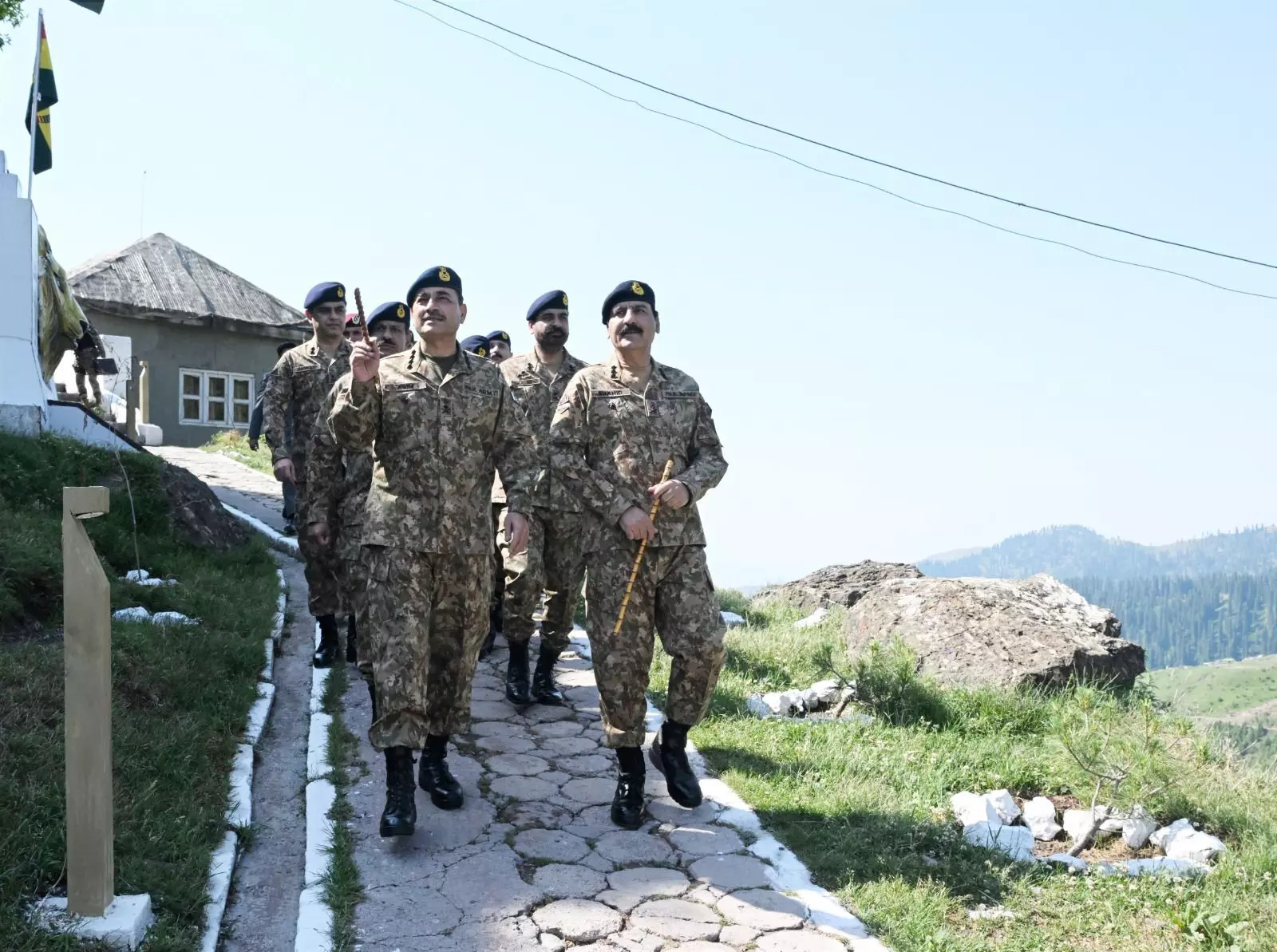Nefarious designs
General Asim Munir’s anti-India posturing, against the backdrop of recent terror attacks in J&K, should serve as a reminder for the Indian military establishment to step up their preparedness

Pakistan Chief of Army Staff (COAS) General Syed Asim Munir visited the Line of Control (LoC) in the Haji Pir sector on June 17 to celebrate Eid ul Azha with the troops. He offered prayers with the personnel at the frontline, praying for Pakistan’s peace and prosperity. This was apparently a choreographed show of solidarity to the Army rank and file to keep them motivated, possibly to meet any self-perceived military challenges emanating from India. He also paid tribute to those killed in anti-terror operations.
During his address to the troops, his statement that “Pakistan has always supported peace and stability in the region; however, any provocation or violation of Pakistan’s territorial sovereignty will be met with a swift and resolute response, with the full support of the nation” is seen by experts as a signal to the Indian military and political leadership that the Pakistan army is a force to reckon with. It would seem that General Munir chose this timing particularly in the aftermath of the new Indian government taking charge barely nine days before this statement. The COAS also sent out a message to his political bosses about the army's preparedness to meet any “eventuality.”
Touching upon Kashmir, Munir mentioned the indigenous “freedom struggle” of the people in Indian "Illegally" Occupied Jammu and Kashmir (IIOJK) and reiterated Pakistan’s “principled” stance, aligned with the relevant United Nations resolutions. He condemned India’s ongoing oppression and brutalities against the Kashmiris, saying that post-election, India had been attempting to mask its aggression and victimization of the Kashmiri people with false propaganda and provocations against Pakistan.
While discussing the current Pakistani Army Chief, it is pertinent to mention that General Munir was the Director General of Inter-Services Intelligence (ISI) from 2018-2019, perhaps the shortest tenure of a DG ISI in the country’s history. It is commonly believed that General Munir was removed by then Army Chief General Qamar Javed Bajwa under pressure from Imran Khan when Munir claimed to have exposed the corruption of Imran Khan’s wife, Bushra Bibi. He also played a crucial role in handling anti-India intelligence operations in 2019 and, as head of a committee, took a hardline stance against India, recommending strong action to counter any Indian threat, especially in the wake of developments related to the Pulwama incident. Incidentally, Munir had also served as Director General of Military Intelligence (DGMI) in 2016. He is believed to be the only Army Chief in the history of Pakistan who had earlier served as Chief of both premier military intelligence agencies of Pakistan, the ISI, and Military Intelligence.
Coincidentally, soon after the new Indian government assumed office under Prime Minister Modi’s third term, a terror attack on June 9, claimed by The Resistance Front (TRF), brutally assaulted a bus carrying Hindu pilgrims in Reasi district. This attack resulted in nine deaths and 33 injuries. The TRF declared this as merely the “beginning of a renewed start,” with explicit threats of more violence against tourists and non-locals. Subsequently, on June 11, two Pakistani infiltrators launched an attack on villagers in the Saida-Sukhal village of Kathua district. Masquerading as individuals in need of water, these terrorists aroused suspicion and subsequently opened fire when confronted, injuring a civilian. The confrontation escalated, culminating in the death of one terrorist. This incident raises strong possibilities of renewed cross-border operations by Pakistan, notably ISI, this time targeting the Jammu region due to increased alertness in Srinagar and other areas.
Perhaps the new ISI blueprint is to hit out at Hindus, adding a communal color to Pakistan's machinations. Some analysts, speaking on condition of anonymity, suggest that General Munir, with his early religious education in a traditional seminary in Rawalpindi, the Markazi Madrassa Dar-ul-Tajweed, is perhaps intolerant towards other religions and is therefore pursuing his personal agenda of targeting people of different faiths, capitalizing on his long exposure in the intelligence field.
The same insiders also suggest that General Munir has carefully calculated to step up ISI-led operations targeting India in order to provoke the Indian military while keeping his political bosses happy to further his career. As it is, the Army Chief is in the good books of the political leadership and was part of the entourage during Prime Minister Shehbaz Sharif’s visit to China. General Munir met Chinese President Xi Jinping, and photos of him shaking hands with the Chinese President were widely publicized on social media, obviously to enhance his image among Pakistan's political and security establishment.
In the foregoing, it would appear advisable for Indian security and intelligence agencies to step up their vigilance against Pakistani ISI and military, who may be working overtime to target Indian security infrastructure and sensitive installations. Pakistani intentions seem suspect, as evidenced by recent misadventures in the Jammu region. This needs to be read in conjunction with General Munir’s anti-India posturing.
The writer is a retired IPS officer, Adviser NatStrat, and a former National Security Advisor in Mauritius. Views expressed are personal



